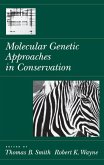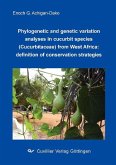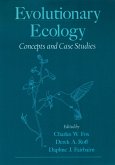Two of the great mysteries of biology yet to be explored concern the distribution and abundance of genetic variation in natural populations and the genetic architecture of complex traits. These are tied together by their relationship to natural selection and evolutionary history, and some of the keys to disclosing these secrets lie in the study of wild organisms in their natural environments. This book, featuring a superb selection of papers from leading authors, summarizes the state of current understanding about the extent of genetic variation within wild populations and the ways to monitor such variation. It proposes the idea that a fundamental objective of evolutionary ecology is necessary to predict organism, population, community, and ecosystem response to environmental change. In fact, the overall theme of the papers centers around the expression of genetic variation and how it is shaped by the action of natural selection in the natural environment. Patterns of adaptation in the past and the genetic basis of traits likely to be under selection in a dynamically changing environment is discussed along with a wide variety of techniques to test for genetic variation and its consequences, ranging from classical demography to the use of molecular markers. This book is perfect for professionals and graduate students in genetics, biology, ecology, conservation biology, and evolution.
Dieser Download kann aus rechtlichen Gründen nur mit Rechnungsadresse in A, B, BG, CY, CZ, D, DK, EW, E, FIN, F, GR, HR, H, IRL, I, LT, L, LR, M, NL, PL, P, R, S, SLO, SK ausgeliefert werden.









